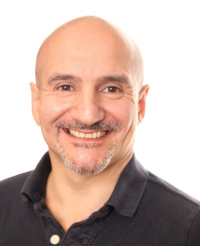My Approach
I work from a Psychosynthesis perspective, which is an Integrative, holistic and transpersonal approach to therapy. This means I’m interested in the full range of your experience—your struggles, but also your values, inner strengths, and the parts of you that may be waiting to emerge.
People often come to therapy carrying deep pain. They may have experienced trauma, loss, relationship breakdowns, or found themselves simply surviving—disconnected from meaning, using whatever they can to numb what feels unbearable.
I offer a space where we can gently explore these experiences at your pace, with care and without judgement.
Psychosynthesis sees each person as more than just what’s gone wrong. I believe in our innate capacity to heal, grow, and reconnect with who we truly are.
Therapy, as I see it, is a collaborative process—supporting you to move towards greater self-awareness, self-acceptance and choice.
Together, we can begin to uncover what really matters to you, and move towards a fuller, more authentic way of being in the world.
About Me
Before becoming a psychotherapist, I worked for many years as a professional musician and educator. My early career was rooted in creativity and self-expression—first as a classical and jazz guitarist, then as a teacher, producer and songwriter.
Over time, life’s challenges—including a serious health crisis—led me on a deeper journey of self-discovery and healing. That journey eventually brought me to Psychosynthesis, and to the work I now do with others.
I have worked with a range of clients across private practice and charitable organisations, including supporting autistic and disadvantaged young people.
I bring warmth, intuition and real-life experience to my work, and aim to meet each person with care, honesty and respect.
I hold Diplomas in Psychosynthesis Counselling, Psychotherapeutic Counselling and Psychotherapy, and am an Accredited member of the UKCP.
I have also trained in Emotional Freedom Technique (EFT), Neuro-Linguistic Programming (NLP at practitioner and master level), Imago, Hypnotherapy, and Mindfulness. I hold Diplomas in both Life and Leadership Coaching.
I offer a free 30-minute consultation, either on Zoom or by phone. This is a gentle starting point—a space for you to share a little about what’s going on, what’s brought you here now, and to begin to explore how we might work together.
It’s also a chance for you to get a feel for me and how I work, and to see whether this feels like a safe and supportive space for you. You’re welcome to ask any questions, and there’s no pressure to decide anything straight away.
If we choose to continue, ongoing sessions can take place in person at my home practice, or remotely by Zoom or phone—whatever feels right for you.
I work with
- Couples
- Individuals
Special Interests
Like all UKCP registered psychotherapists and psychotherapeutic counsellors I can work with a wide range of issues, but here are some areas in which I have a special interest or additional experience.
Types of Therapies Offered
- Psychosynthesis Psychotherapist
What I can help with
Types of sessions
- Face to Face - Long Term
- Face to Face - Short Term
- Home Visits
- Online Therapy
- Telephone Therapy
Office
EN1 4TW
United Kingdom (UK)
View Map
Cost:
£65. Free 30-minute consultation.UKCP College
- Humanistic and Integrative Psychotherapy College (HIPC)


